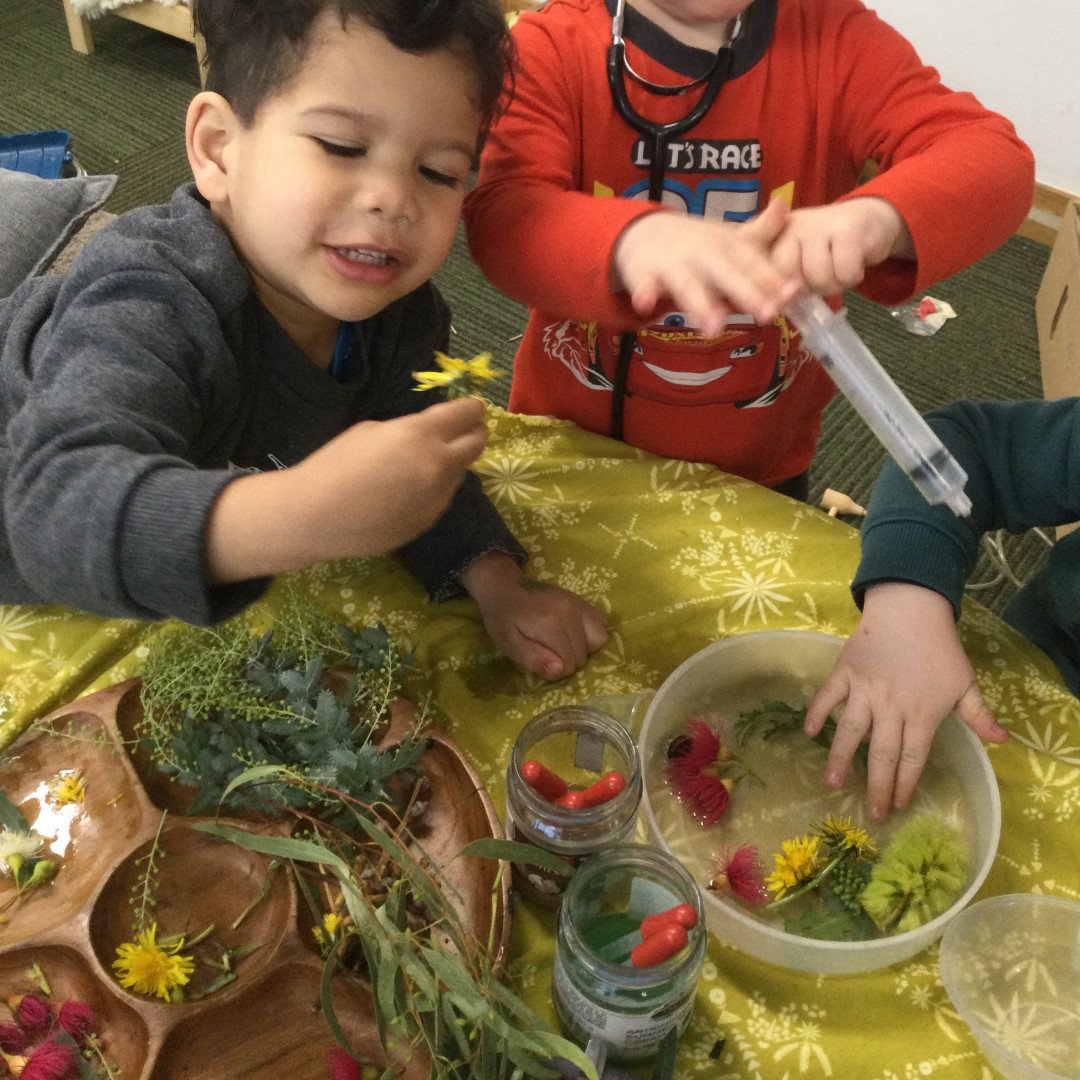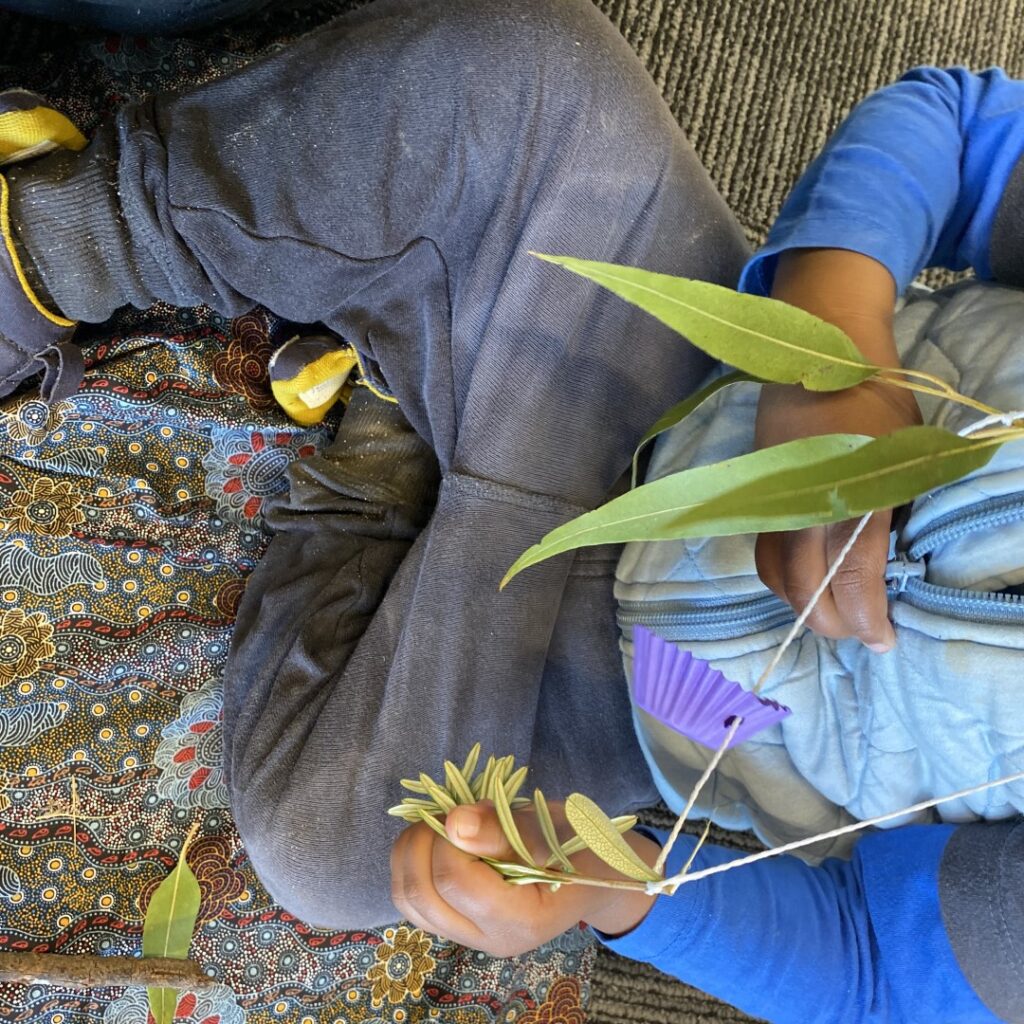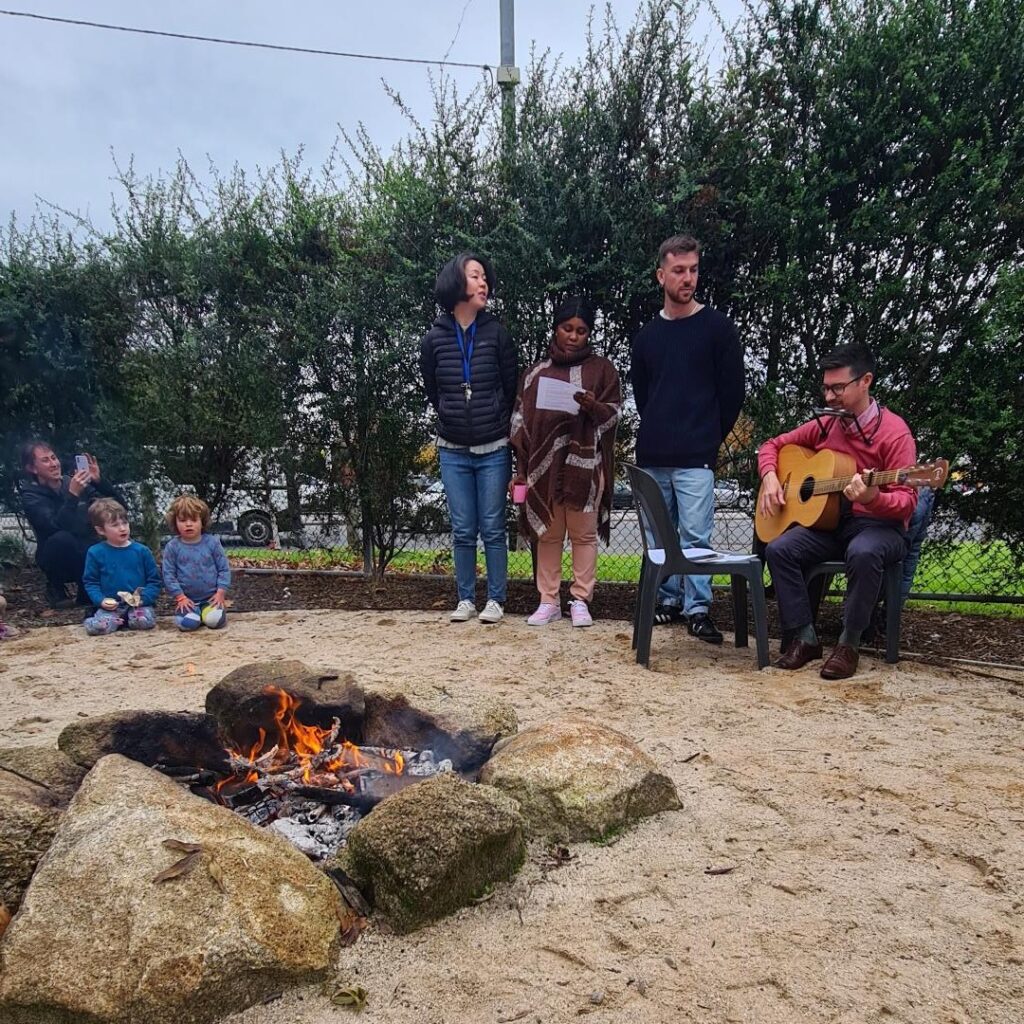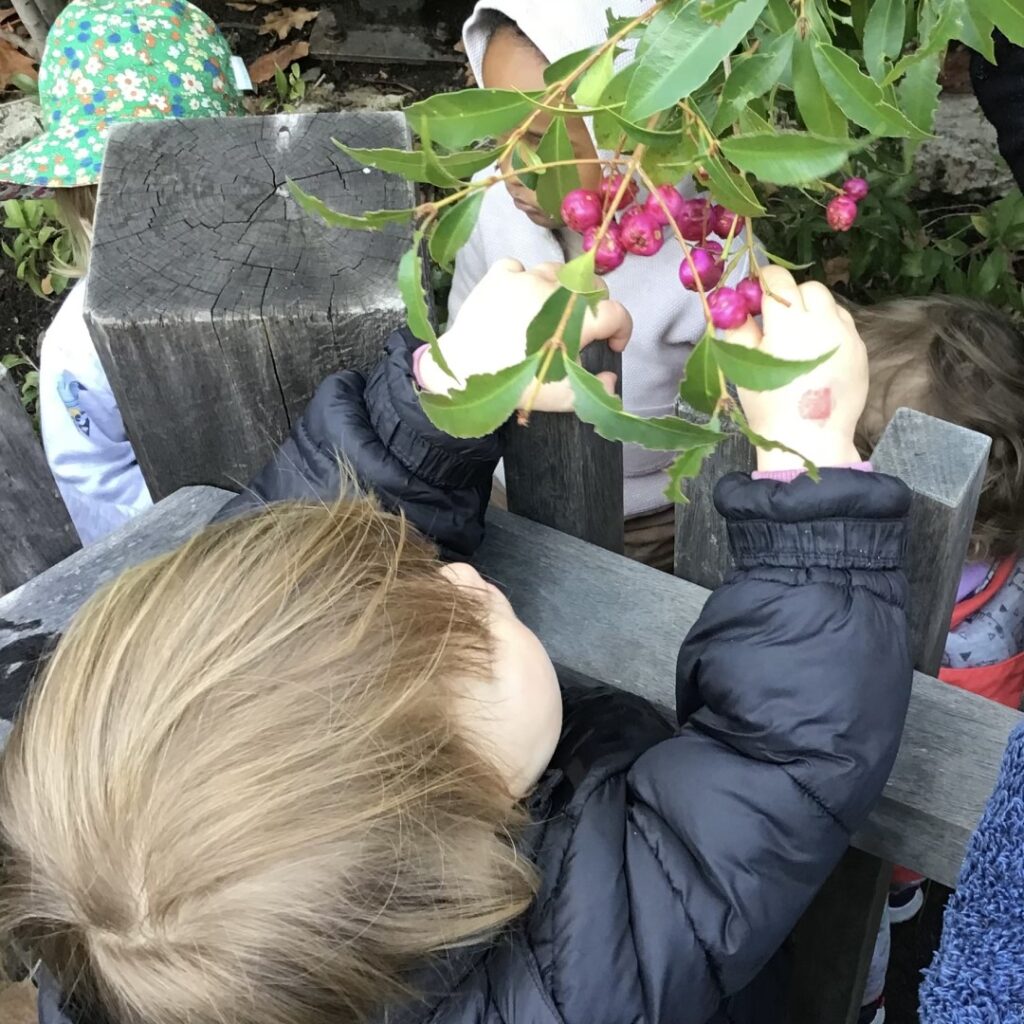National Reconciliation Week has been a valuable opportunity for children, educators and families at Gowrie Victoria to learn more about First Nations cultures, achievements and shared histories. The 2023 theme Be a Voice for Generations inspired further exploration of how each of us can contribute to achieving reconciliation in Australia.
Activities and events were held across our six services, with children engaging in storytelling, art, cooking, music and play, to celebrate and honour the world’s oldest continuous culture.
Some experiences included learning about traditional bush medicine, building a shared wombat (waring) hollow, and harvesting Lilly Pilly from the garden to create a nutritious spread for our homemade bread. There were campfires and craft activities, and kinder children danced with clap sticks to the music of Briggs and Yothu Yindi, while others participated in community activities at their local neighbourhood house.
At Gowrie Victoria, our journey of reconciliation stretches beyond the week as we continue to incorporate truth-telling and learning of First Nations cultures throughout our daily practice.

Clare Court
As part of National Reconciliation Week, the Cockatoo group children at Clare Court are exploring the concepts of Bush Medicine. Drawing on wisdom from local First Nations knowledge, the children are studying the remarkable healing properties found in plants, trees and sap, and even creating their own ‘medicines’ in play to heal each other, Country and ‘people that are sad and need to feel better’. Discussions involve the traditions of healing that have supported First Nations people for millennia and continue to play a central role in community health and wellbeing.

Broadmeadows Valley
On May 26, children and educators of Broadmeadows Valley came together to acknowledge National Sorry Day. This involved an Acknowledgment of Country and a discussion on what the word ‘sorry’ might mean to them. The children quickly highlighted that “If you hurt someone, you can say sorry.” The children linked this to caring for Country and educators prompted them to consider who may have been on the land we now recognise as kinder. Following this, the children watched a video with Taungurung woman Annette Sax of Yarn Strong Sista to learn how to create an Indigenous Necklace using natural materials. The children were quick to notice her say ‘Wominjeka’ at the start of the video and were able to identify some of the natural materials, including flowering gum, she-oak branches and spotted gum leaves

Carlton North
Children and educators from Carlton North were invited to take part in Reconciliation Week activities at the Carlton Neighbourhood Learning Centre this week. The children lead the Acknowledgement of Country and took part in discussions and crafts about the Aboriginal flag colours and their meanings. The yellow is the Nua. The sun. A tour of the community garden followed, where children learnt about the different plants growing and said hello to the chickens. The garden is called Ballam Ballam, which is Wurrundjerri for the white butterfly that appears in summer. The highlight was sitting around the fire, underneath the mural of Djalu, where children sang along to ‘From Little Things Big Things Grow’ with members of the community. This special morning was a great chance to connect with Country, and for all the children to engage in conversation and collaboration with the community.

Carlton Learning Precinct
Some experiences from this week include: building a shared wombat (waring) hollow and harvesting Lilly Pilly from the garden to transform into a nutritious spread to enjoy on homemade bread – all the while learning that these ideas and skills have been embedded for over 60,000 years by the oldest continuous culture on the planet. The kinder children danced with clap sticks to the rap music of Briggs, listening and learning through the song ‘The Children Came Back’ and also to the Yothu Yindi song ‘Treaty’. By engaging in truth telling using music, the children can digest challenging concepts in a way that meets their developmental needs.